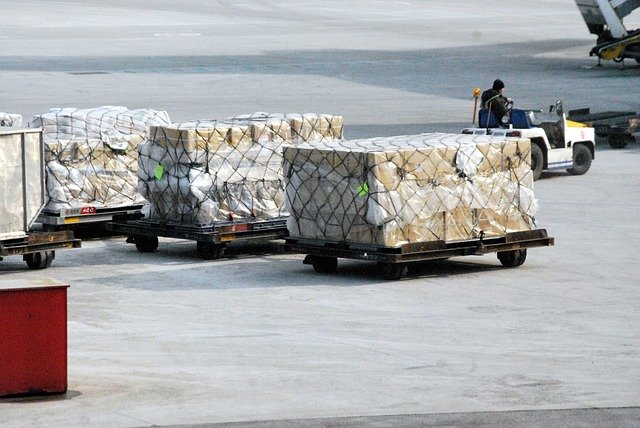
-
The Office for Transportation Security (OTS) has issued new guidelines for securing air cargo and mail consignments being loaded onto aircraft
-
OTS Memorandum Circular 2020-007 provides more detailed security controls, including screening, for cargo and mail for loading onto an aircraft
-
Responsibilities of appropriate government authorities, Philippine National Police Aviation Security Unit, airport operators, aircraft operators, ground-handling agents, and cargo operators are also outlined
Stakeholders such as aircraft and cargo operators, ground handlers, airport authorities/operators and security service providers have to observe new rules on air cargo and mail security, according to the Office for Transportation Security (OTS).
The OTS has issued Memorandum Circular (MC) 2020-007, which provides policies and guidelines for securing air cargo and mail consignments being loaded onto aircraft to prevent unauthorized interference.
MC 2020-007 applies more detailed security controls, including screening where applicable, to cargo and mail prior to their loading onto an aircraft engaged in commercial air transport operations. This is pursuant to the requirements of the Philippine National Civil Aviation Security Program (PNCASP) and the Convention on International Civil Aviation.
OTS is the designated single authority in transportation security mandated to ensure that Annex 17 of the Convention and PNCASP is implemented.
MC 2020-007 modifies MC 2017-005, which was issued in 2017 and which provides rules and regulations for air cargo and mail security, and MC 2018-004, which amends a few provisions of MC 2017-005.
MC 2020-007 also modifies Transportation Security Regulation No. 2010-0013, which provides the rules on air cargo security of passenger commercial aircraft, insofar as regulated agent regime framework is concerned.
Other rules and regulations inconsistent with MC 2020-007 are repealed or modified.
Acts of unlawful interference
In particular, MC 2020-007 expands the definition of acts of unlawful interference, which now also include destroying an aircraft in service, and using an aircraft in service to cause death, serious bodily injury, or serious damage to property or the environment.
MC 2020-007 applies to national aircraft operators, foreign aircraft operators, ground-handling agents and/or cargo operators, airport authorities/operators catering to cargo operations, entities responsible/involved in screening of cargo and entities which offer goods for transport by air.
The new policy also now covers service providers with security responsibilities.
MC 2020-007 was dated December 18, 2020, but was only published on the OTS website on January 21, 2021 and took effect immediately.
MC 2020-007 states that air cargo and mail should be processed for transport by air in an operating environment that meets the following objectives:
- Cargo and mail should come from a secure supply chain, or be screened to effectively detect prohibited items
- Additional security measures beyond baseline procedures should be applied to deemed high-risk cargo and mail
- Once secure, cargo and mail should be kept secure throughout their entire journey, including at transfer and transit points
- Cargo and mail operations should be subject to oversight and quality control activities
- Unnecessary duplication of security controls should be avoided
All air cargo and mail intended for carriage on international or domestic passenger flights should be subject to appropriate security controls, including screening where practicable, by aircraft operators and/or authorized entities prior to being loaded onto aircraft.
All cargo areas must develop and implement facility security controls to prevent perpetrators from carrying out an act due to access controls in place and the inability to reach the target; to detect an action which has taken place so that appropriate countermeasures can be employed; and to deter perpetrators from attempting an attack because perceived personal risk involved is considered too high.
Appropriate security controls associated with the key pillars that characterize a secure supply chain (facility security, personnel security, training, screening, chain of custody, and oversight and compliance) must be implemented by each of the entities operating within the secure supply chain.
Screening exemptions
There are, however, cargo and mail that are exempted from screening or that will require the use of alternative security measures because of the special nature of some types of cargo as defined in the Airport Security Program and Airport Operator’s Security Program. These cargoes, same as in MC 2017-005, include:
- High-value cargo
- Diplomatic mails
- Live animals such as livestock or pets
- Vaccines and other perishable medical items
- Life sustaining items
- Human remains
- Dangerous goods/hazardous materials
- Other exemptions
MC 2020-007 also provides the standards for accepting, handling, storage and loading of cargo; and procedures for mail security from acceptance to screening.
Similar to MC 2017-005, MC 2020-007 also outlines the responsibilities of the appropriate government authorities, Philippine National Police Aviation Security Unit (PNP-AVSEU), airport operators, aircraft operators, ground-handling agents, and cargo operators.
MC 2020-07 now provides the “pillars of secure supply chain,” which include facility security, personnel security training, screening of cargo and mail, chain of custody, and internal quality control. It also outlines the requirements for contingency plans.
Misrepresentation of information or fraud in the execution of consignment security declaration (CSD) will be ground for criminal prosecution, or perpetual disqualification or ban to transact or do business at the airport.
A CSD is a written certification, in hard copy or electronic form, made by the entity that makes the cargo secure and is accessible to all parties in the supply chain, attesting that the consignment to which the document refers is a known cargo, where security controls have been applied to.
PNP-AVSEU and airport personnel who fail to implement and enforce the security measure under MC 2020-007 will be subject to administrative cases for neglect of duty.
Aircraft operators, ground handlers, cargo operators who violate the procedures for accepting, storing, handling, or loading of cargo will be liable for damages and injury caused to third person. In the event of act of unlawful interference, and the proximate cause is the negligence of the airline operator and/or ground handling agent, they will be subject to civil penalties and/or criminal prosecution, in accordance with existing rules and regulations. – Roumina Pablo




